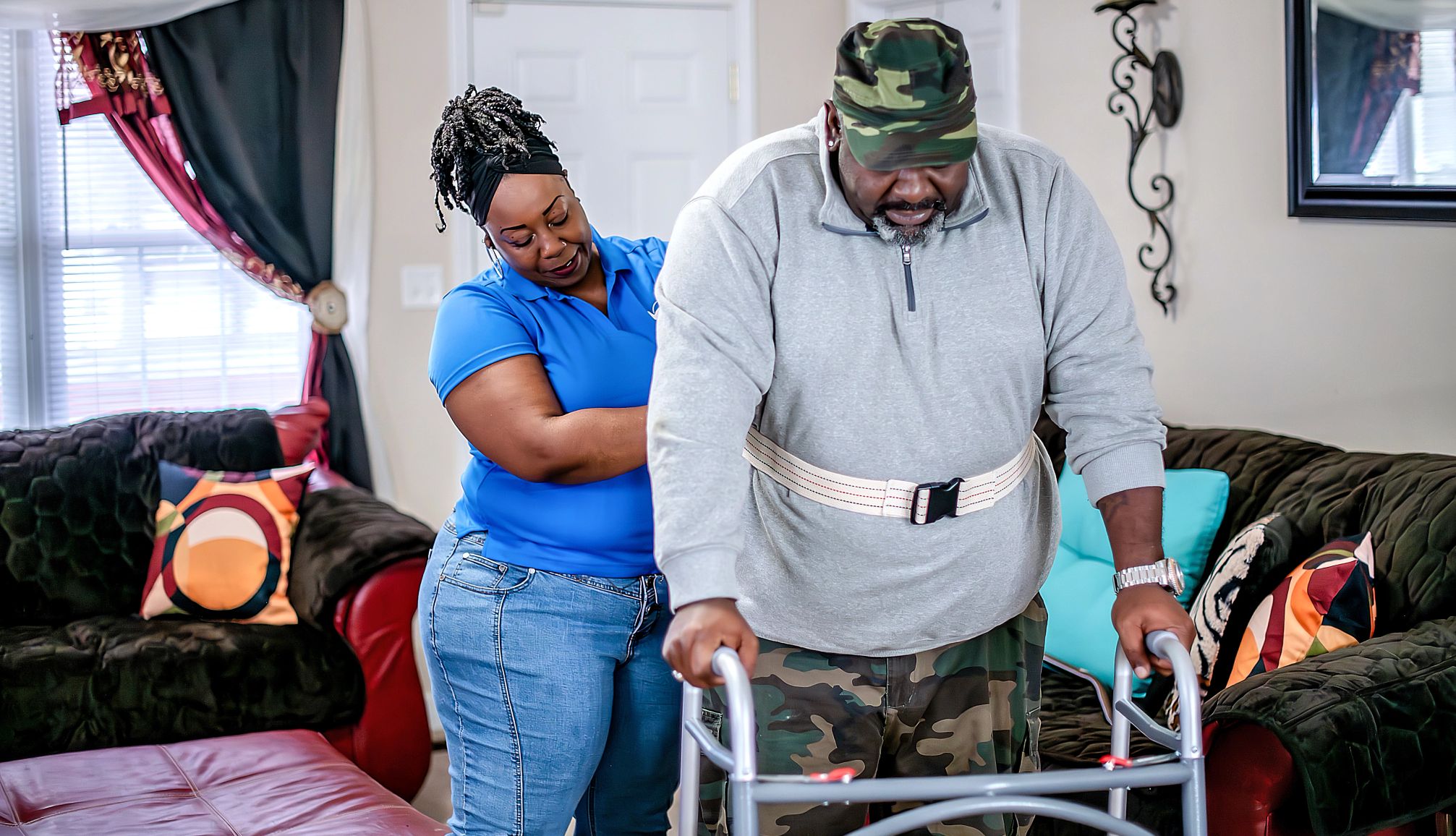AARP Hearing Center


Most veterans who need care are getting it at home from their loved ones, and Congress should do more to support them, an AARP veterans’ expert told Capitol Hill lawmakers Wednesday.
Speaking before the U.S. House Committee on Veterans Affairs, AARP Kentucky State Director and Operation Desert Storm Army veteran Troy Broussard told lawmakers that family caregivers are “holding up their families and America’s long-term health care system.”
“While it’s a labor of love, it can also be overwhelming, both personally and financially,” he said.
Broussard called on Congress to pass a bipartisan bill that would provide a tax credit for family caregivers to help offset caregiving costs, and urged them to make it easier for military and veteran caregivers to navigate federal agencies like Medicare, Social Security and the U.S. Department of Veterans Affairs on their loved one’s behalf.
Learn How AARP Is Fighting for You
AARP is your fierce defender on the issues that matter to people 50-plus. Read more about how we fight for you every day in Congress and across the country.
On average, family caregivers spend more than $7,200 each year on caregiving expenses, according to AARP research. But Broussard said caregivers of veterans spend 50 percent more than that — an average of $11,500 a year — because military veterans often require more complex care.
In his written testimony, Broussard said military caregivers consistently experience poorer health outcomes, greater strains in family relationships and more workplace problems than noncaregivers. They often provide care earlier and longer than civilian caregivers because of service-related injuries.
“Family caregivers need commonsense solutions that will save them time and money and provide them with more support,” he said in his testimony.
Resources available but more help needed
AARP has spearheaded numerous efforts to support veterans and their caregivers. Our Veterans Resources Hub helps veterans, active duty and military families find information about VA benefits, caregiving, fraud and more.
With the Elizabeth Dole Foundation, we developed a caregiving guide and a mental health and emotional support guide for veteran and military family caregivers.
Join Our Fight for Caregivers
Sign up to become part of AARP’s online advocacy network and help family caregivers get the support they need.
AARP also offers a free digital tool to help veterans and family members navigate health benefits, including help available through the PACT Act for veterans exposed to toxins, as well as a guide to benefits for veterans who want to modify their homes so they can remain independent.
“We are doing what we can to help,” Broussard told the panel. “We try to make sure that veterans and their families get access to benefits that they’re eligible for, and know what help is out there, but we need more than a website.”
Watch a recording of the hearing, and find more on family caregiving and AARP’s caregiving advocacy.































































More From AARP
VA Announces New Website and Call Center to Protect Veterans From Fraud
A multiagency federal effort aims for a ‘one-stop shop’ to help military families targeted by scamsExtend Tax Credit for Paid Family Leave, AARP Tells Congress
Bill aims to encourage employers to offer paid time off for caregivingVA: Free Copays for Veterans’ Mental Health Visits
Covers first three outpatient visits per yearRecommended for You